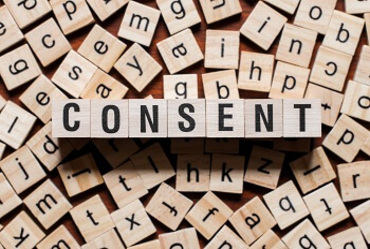
In New York, felonies are categorized by severity, from Class A (the most serious) to Class E (the least). Class B felonies are considered extremely serious crimes that carry significant prison time, often up to 25 years. If you're facing a Class B felony charge, it's vital to understand the nature of the offense, the penalties involved, and your legal options. This article outlines some of the most common crimes classified as Class B felonies in New York, along with the potential consequences. What Is a Class B Felony in New York? Under New York Penal Law, a Class B felony is a high-level crime that falls just below the…Read More

Being arrested or charged with a crime can be overwhelming and confusing, especially if it's your first encounter with the criminal justice system. Understanding the criminal defense process helps you navigate this difficult time with greater confidence. This guide breaks down each stage of the process, from arrest to verdict, so you know what to expect and how to protect your legal rights. 1. Arrest or Criminal Investigation The criminal defense process often begins with either an arrest or a formal investigation. Arrest: A police officer may arrest you on the spot if they have probable cause or an arrest warrant. Investigation: Law enforcement might conduct a formal investigation before…Read More

A restraining order, also known as a protective order, is a legal directive issued by a court to protect individuals from harassment, abuse, stalking, or threats. These orders can be crucial in ensuring a victim’s safety. However, violating a restraining order is a serious legal offense that can lead to arrest, criminal charges, and long-term legal consequences. Whether you're the one seeking protection or the person the order is issued against, it’s essential to understand the implications of violating a restraining order. What Is a Restraining Order? A restraining order is typically issued in cases involving: Domestic violence Stalking or harassment Threats or physical assault Sexual abuse Divorce or child…Read More

As celebrations like the Fourth of July and New Year's Eve approach, many Californians wonder: Are fireworks legal in California? The answer is not as simple as “yes” or “no.” California has a complex system of state and local regulations that govern the use, sale, and possession of fireworks. This article breaks down everything you need to know about fireworks legality in the Golden State, including what types are allowed, where they're permitted, and the potential penalties for misuse. Statewide Fireworks Laws in California At the state level, California classifies fireworks into two main categories: Safe and Sane Fireworks Dangerous and Illegal Fireworks Safe and Sane Fireworks “Safe and Sane”…Read More

If you've recently received a notice requiring you to pay a Driver Responsibility Assessment (DRA), you're not alone—and you're probably wondering what it is and why you owe it. This additional fee often catches drivers off guard, especially after they've already paid a traffic ticket or completed court requirements. So, why do you have to pay it? In this article, we’ll break down what the driver responsibility assessment is, who has to pay it, how much it costs, and what happens if you don’t pay. Understanding the DRA can help you avoid additional penalties and take control of your driving record. What Is a Driver Responsibility Assessment? The Driver Responsibility…Read More

Theft and larceny are common property crimes, but when the value of the stolen property crosses a certain threshold or specific circumstances apply, these offenses can escalate to felony charges. Felony theft and larceny laws carry serious legal consequences, including prison time, heavy fines, and a permanent criminal record. This guide provides a detailed overview of what constitutes felony theft and larceny, how they are defined legally, the penalties involved, and how state laws differ across the U.S. What Is Felony Theft or Felony Larceny? Felony theft or felony larceny refers to the unlawful taking of someone else's property with the intent to permanently deprive them of it, when the…Read More

Misdemeanor assault may sound minor compared to felony assault, but it can still carry serious legal and personal consequences. Whether it’s a verbal threat or a light physical altercation, being charged with assault—even as a misdemeanor—can affect your record, career, and reputation. In this guide, we break down the key aspects of misdemeanor assault laws, the types of behavior they cover, and the penalties involved. We’ll also explore how these laws vary by state and what you can do if you're facing charges. What Is Misdemeanor Assault? Misdemeanor assault is generally defined as an unlawful attempt or threat to cause physical harm to another person, without the use of a…Read More

When your sponsor license receives a suspension in a State, then they express worries about your duties as a sponsor and possible unauthorized immigration practices. Read this section to learn the right actions during a license suspension and understand typical suspension causes together with response methods against possible license revocation. What Does a Sponsor License Suspension Mean? A license suspension prohibits you from starting new CoS processes and makes all active CoS invalid for non-European migrants. Your organization remains unable to create new CoS to support migrant worker entry in all available visa routes that match your license. Your designated Authorizing Officer along with the selected Key Contact and new…Read More

The laws about consent in Michigan need to be understood by everyone who experiences relationships. These regulations must prevent minor abuse and establish the legal limits of sexual participation. This post explains Michigan's age consent rules including the connected laws and conditions when sex becomes unlawful. What Is the Age of Consent in Michigan? A person must be 16 years old according to Michigan law to consent to sexual activity. According to Michigan sexual activity laws a person who has reached age 16 has legal permission to engage in sex. The laws still apply even with certain exceptions mainly when one participating party holds authority and has a large age…Read More

A felony charge creates serious legal complications that prompt most defendants to wonder about their potential imprisonment duration. Long-term prison time combined with heavy financial penalties along with lasting social effects constitute the major consequences that you will experience after a felony conviction. This guide explains felony jail term possibilities as well as felony classification procedures and details sentencing influence factors. What Is a Felony? The most dangerous criminal offenses belong to the felony category which leads to imprisonment exceeding twelve months. All felony crimes exist above the criminal ranks of misdemeanor offenses and infractions which receive lesser punishments or demand no punishment at all. The list of felony offenses…Read More
